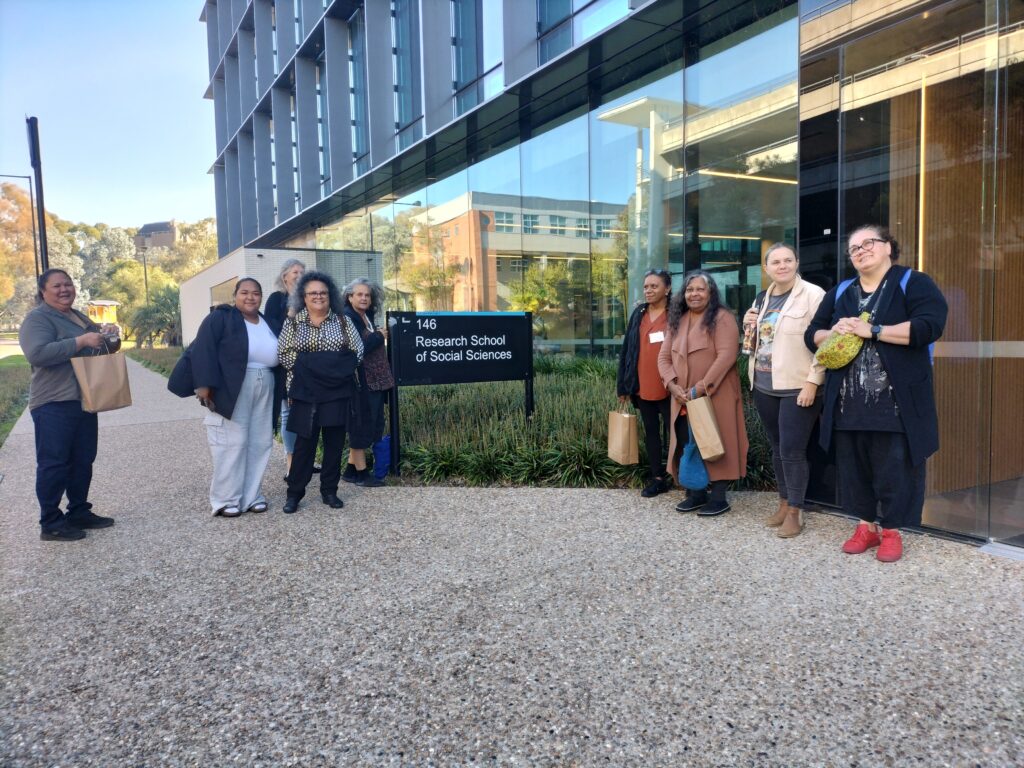
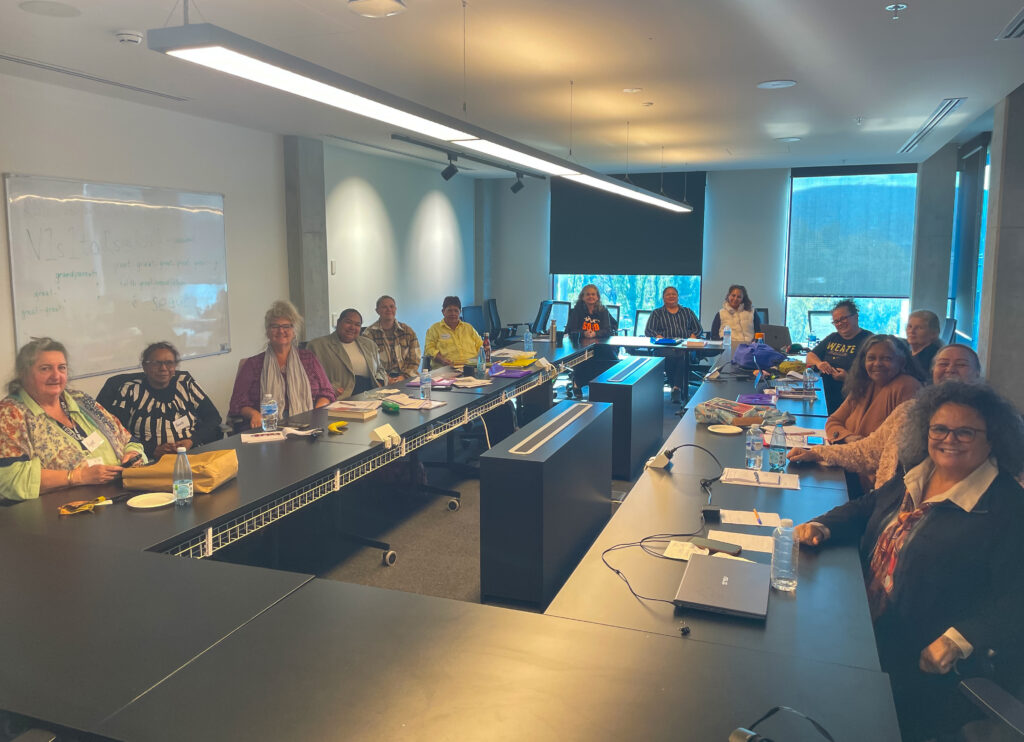
Last month, the Research Centre for Deep History welcomed a group of fourteen Indigenous women to the first RCDH Indigenous Family Research and Writing Skills Workshop. Following a highly competitive application process, fourteen participants were selected to travel to ANU from various places – including Adelaide, Bateman’s Bay, Weipa, Ulladulla, Mackay, Melbourne, Newcastle, Coolangatta and Coffs Harbour.
After arriving in Canberra, participants visited the RSSS Building and met their roommates for the workshop, followed by a welcome dinner hosted by the RCDH. The main program for the two-day workshop was designed and delivered by ANU alumni Dr Shauna Bostock. Featuring sessions on how to locate and use birth, death and marriage certificate and to construct a family tree, Shauna’s program drew on her experiences of conducting her own family research for her doctoral research project, developed into her successful book, Reaching Through Time: Finding My Family’s Stories, published in 2023 by Allen and Unwin. The afternoon of the first day of the program saw a trip to the National Library Australia, where the workshop group was greeted on the steps by the NLA’s Indigenous Engagement team. Participants enjoyed a session on searching Trove, visiting the Special Collections Reading Room, and learning more about the NLA’s collections and how to access them.
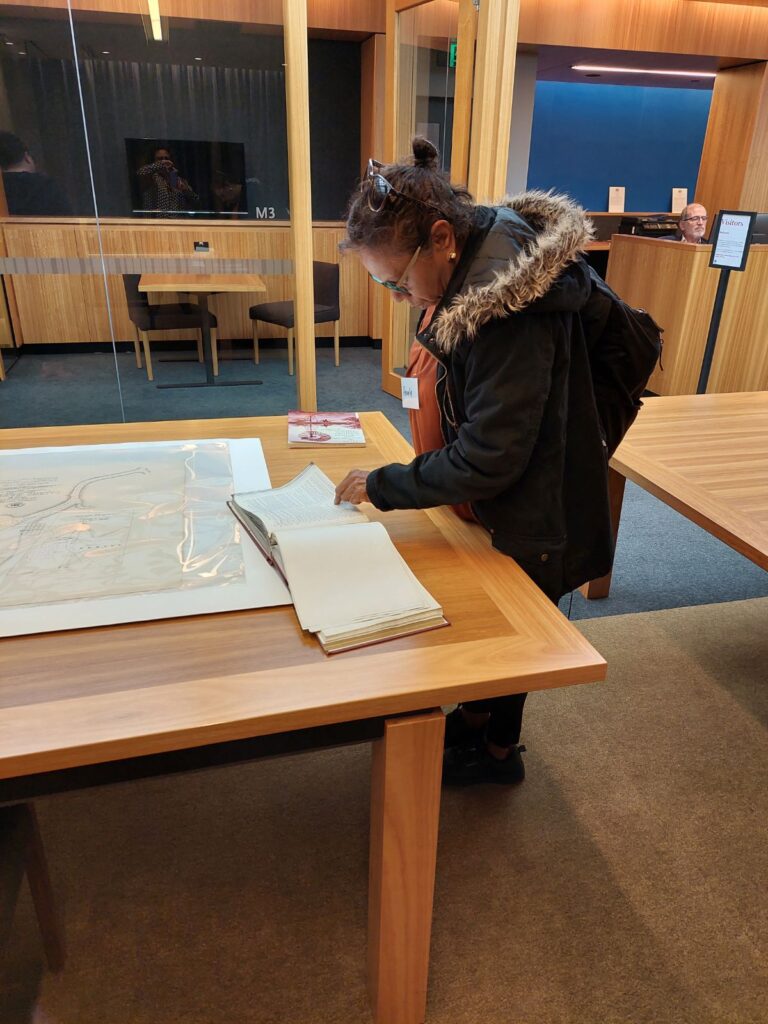
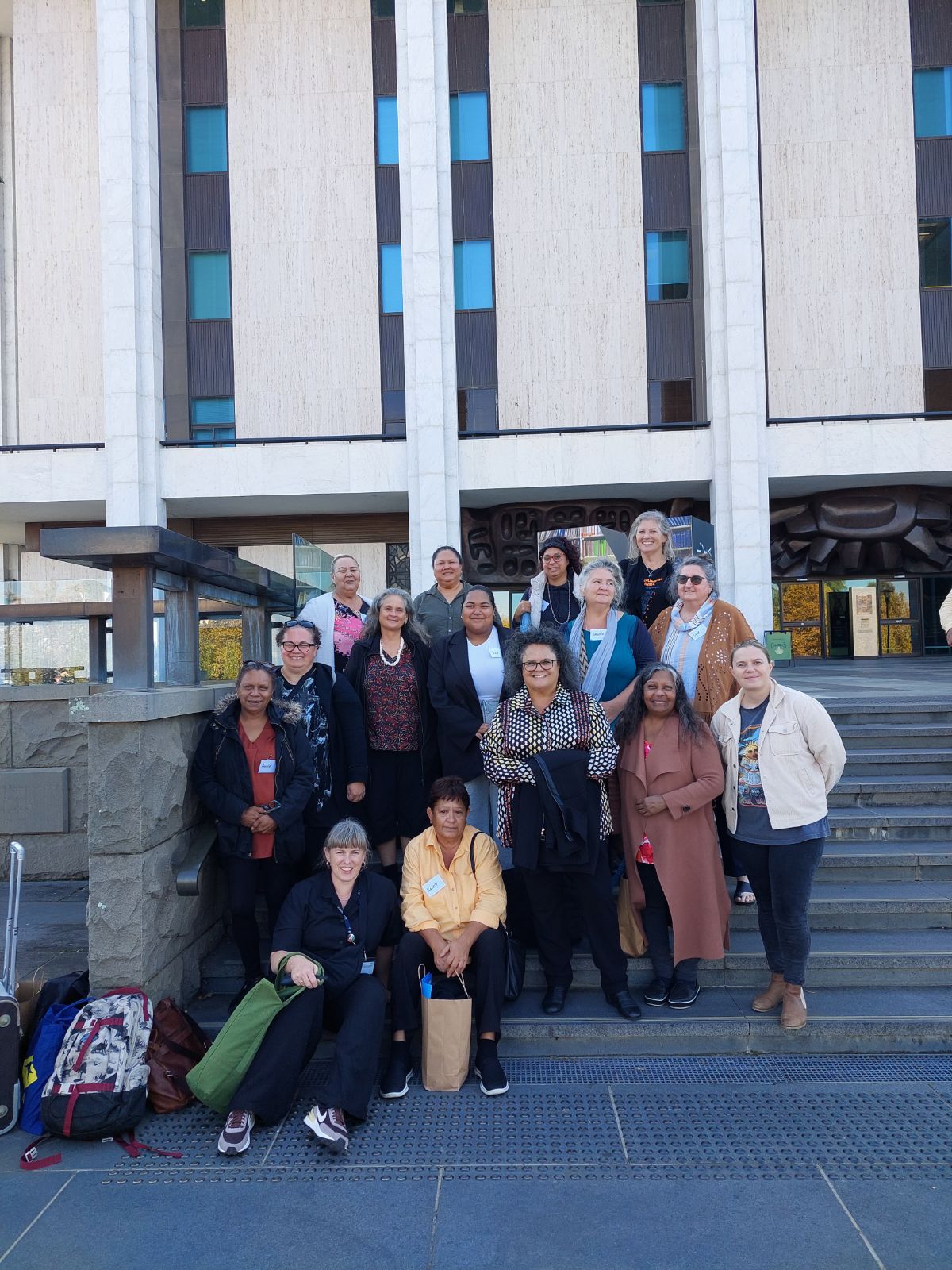
The second day of the program kicked off with a session delivered by the Family History Unit from the Australian Institute for Aboriginal and Torres Strait Islander Studies. This session, led by AIATSIS Family History Unit Assistant Direct Steph Williams, showcased the historical archives and the family history research resources available at AIATSIS. Next, the program covered historical writing skills, including how to write about relationships to relatives, and the differences between nonfiction narrative and academic writing. The workshop wrapped up with a yarning circle and reflections on the workshop program, including discussions about future research directions for the participants.
The participants generously shared constructive feedback. One of the main requests was for the workshop to be longer, and to run again. We have heard from many applicants who were unable to attend this workshop; there is such strong demand for more workshops of this kind.
Extracts from the feedback:
‘Meeting new friends and hearing unique stories.’
‘Everyone sharing and being so generous with their knowledge, and feeling supported and safe through accommodation, cultural safety and food.’
‘Sitting with like-minded women, and the opportunity to ask questions– no judgment, just assistance.’
‘It was very relevant information and resonated with me, my needs and my thoughts.’
‘Can’t express my gratitude of doing this or how important it is.’
‘Listening to each other’s journey.’
‘The workshop has given me confidence to continue my research.’
‘Every part of this workshop was amazing.’

‘I would highly recommend this course to other Indigenous women as it not only helped with writing and family history knowledge, but also with my sense of worth and abilities.’
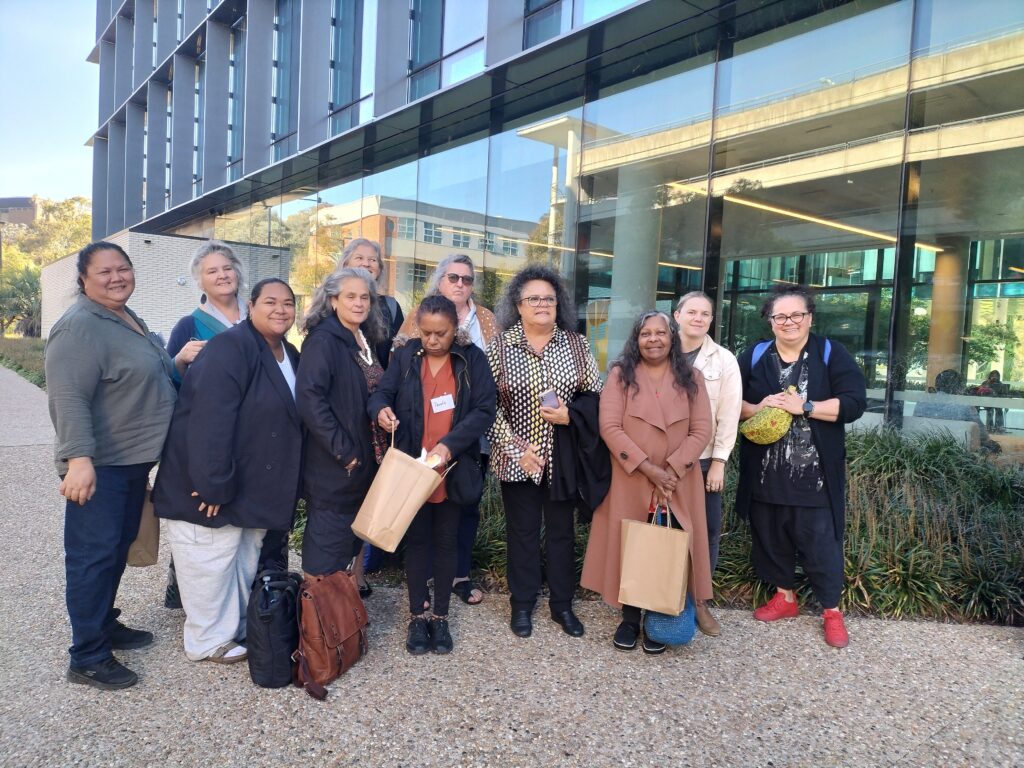
‘It was very relevant information and resonated with me, my needs and my thoughts.’
‘Can’t express my gratitude of doing this or how important it is.’ ‘Listening to each other’s journey.’
‘The workshop has given me confidence to continue my research.’
‘Every part of this workshop was amazing.’
‘I would highly recommend this course to other Indigenous women as it not only helped with writing and family history knowledge, but also with my sense of worth and abilities.’

